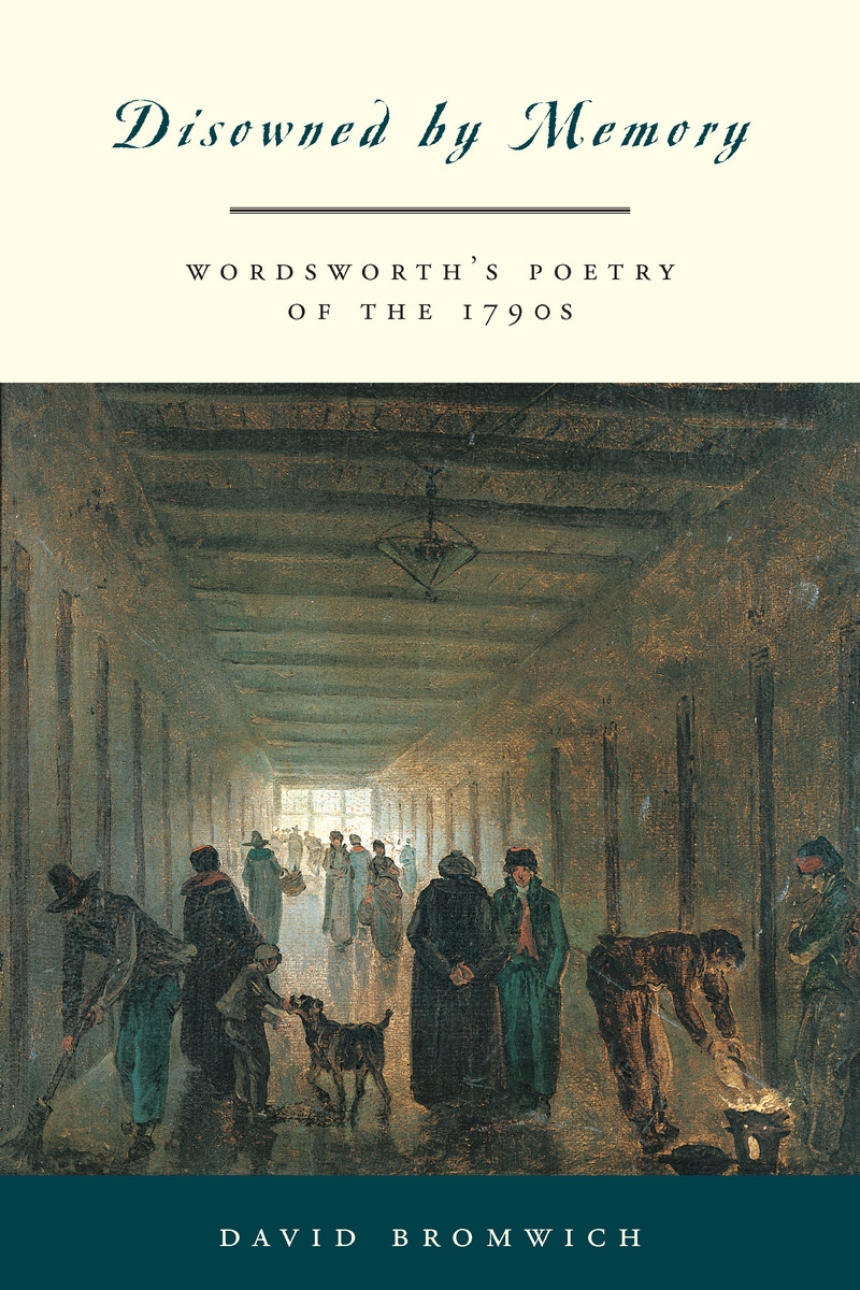Disowned by Memory
Wordsworth’s Poetry of the 1790s
Although we know him as one of the greatest English poets, William Wordsworth might not have become a poet at all without the experience of personal and historical catastrophe in his youth. In Disowned by Memory, David Bromwich connects the accidents of Wordsworth’s life with the originality of his writing, showing how the poet’s strong sympathy with the political idealism of the age and with the lives of the outcast and the dispossessed formed the deepest motive of his writings of the 1790s.
"This very Wordsworthian combination of apparently low subjects with extraordinary ’high argument’ makes for very rewarding, though often challenging reading."—Kenneth R. Johnston, Washington Times
"Wordsworth emerges from this short and finely written book as even stranger than we had thought, and even more urgently our contemporary."—Grevel Lindop, Times Literary Supplement
"[Bromwich’s] critical interpretations of the poetry itself offer readers unusual insights into Wordworth’s life and work."—Library Journal
"An added benefit of this book is that it restores our faith that criticism can actually speak to our needs. Bromwich is a rigorous critic, but he is a general one whose insights are broadly applicable. It’s an intellectual pleasure to rise to his complexities."—Vijay Seshadri, New York Times Book Review
"This very Wordsworthian combination of apparently low subjects with extraordinary ’high argument’ makes for very rewarding, though often challenging reading."—Kenneth R. Johnston, Washington Times
"Wordsworth emerges from this short and finely written book as even stranger than we had thought, and even more urgently our contemporary."—Grevel Lindop, Times Literary Supplement
"[Bromwich’s] critical interpretations of the poetry itself offer readers unusual insights into Wordworth’s life and work."—Library Journal
"An added benefit of this book is that it restores our faith that criticism can actually speak to our needs. Bromwich is a rigorous critic, but he is a general one whose insights are broadly applicable. It’s an intellectual pleasure to rise to his complexities."—Vijay Seshadri, New York Times Book Review
